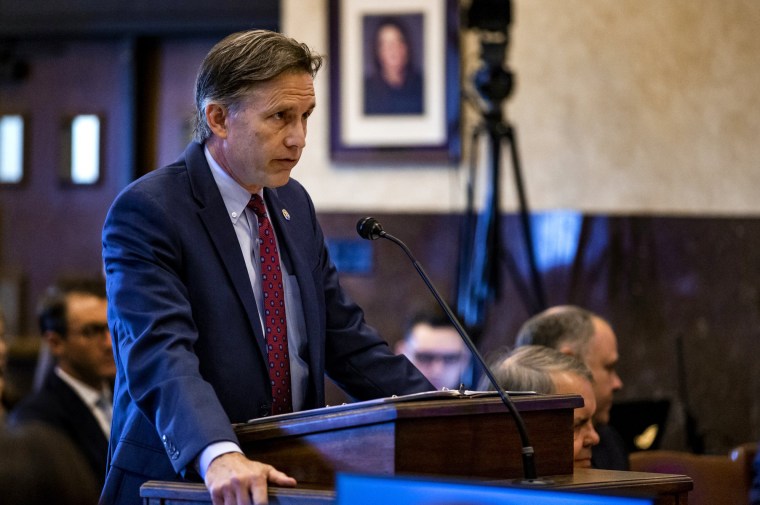Oklahoma’s multibillion-dollar lawsuit against Johnson & Johnson and its subsidiary Janssen is now in the hands of a judge.
The seven-week trial came to a close Monday as lawyers for Oklahoma and Johnson & Johnson presented their closing arguments, ending a closely watched case that presented novel arguments in the fight against opioid addiction. The case could provide a blue print for the nearly 2,000 other pending cases like it across the country.
Oklahoma Attorney General Mike Hunter sued Johnson & Johnson arguing that the company is financially liable for the crisis under the state’s nuisance law and therefore must pay billions of dollars to fund an abatement plan to fix the state’s opioid crisis.
Lawyers for the state referred to the company as a “kingpin” and “cartel” that fueled the crisis through deceptive marketing to doctors by claiming opioids were “safe and effective for every day pain.”
“This company went out and sponsored lies,” said attorney Brad Beckworth during closing arguments for the state.
Throughout the day, the state mixed powerful emotional testimony and pop culture references.
Replaying testimony from witnesses who are recovering from opioid addiction and those who have lost family members, the state tried to make the case that, but for the pain medications supplied by Johnson & Johnson, there would be no opioid crisis.
During one colorful moment, Beckworth played the theme music from the game show “Who Wants to be a Millionaire” while showing a slide in court titled: “Who wants to be a pain franchise billionaire?”
Perhaps the most powerful moment for the state came when it replayed testimony from Tonya Ratcliff, who is a foster mother to babies born addicted to opioids.
Ratcliff called the first days of withdrawal for the infants “hell on earth, and that’s being polite about it.”
She talked about her foster babies crying for days as they went through withdrawal while the state of Oklahoma showed an image of a newborn’s legs shaking uncontrollably as a result of the addiction.
For its part Johnson & Johnson argued that the state failed to meet its burden of proof that the company was responsible for the opioid crisis. Defense attorney Larry Ottaway said Johnson & Johnson’s market share in Oklahoma was less than 1% at the height of the epidemic.
The defense also pointed out that not a single state witness testified that they were misled by Johnson & Johnson or any of its subsidiaries, claiming that Oklahoma failed to prove the company caused the crisis.
Lawyers for Johnson & Johnson argued that its products are heavily regulated and come with clear warnings of the potential side effects and risk associated with its drugs.
“Facts are stubborn,” said Ottaway.
The defense lawyer also pointed out that the courtroom is not the place to solve complex societal problems such as the opioid epidemic.
“Coming to court to ask to solve this is not the way to solve it,” he said.
Both the state Attorney General and Johnson & Johnson have indicated that they will appeal the decision if the court does not rule in their favor.
Two previous defendants, Purdue and Teva Pharmaceutical Industries settled with the state earlier this year for $270 million and $85 million, respectively.
The state is asking Johnson & Johnson to pay up to $17.5 billion. Judge Thad Balkman is expected to issue a ruling on the case by the end of August.
